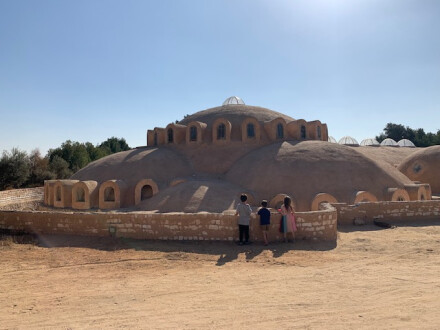From Egypt with Love, 8

If you've been following this blog, you'll know that, with the help of the bishop of Dallas, my wife and I recently moved our four kids to Egypt where I now work for the bishop of Alexandria in the Alexandria School of Theology. I’m not a complete stranger to North Africa and the Middle East. I’ve been here before, and my wife is Iraqi in background. But for the last half year I have continued in a mild state of culture shock. No, it is not entirely due to the change of language or cuisine. This has only added to the adventure. No, it is not the heavy pollution, despite the fact that I’ve developed mild asthma. Neither is it completely the switch to a non-liberal political culture – indeed, it is more free than the pandemic-Canada I left behind. My culture shock, I’ll admit, is all this. More, though, it’s the extreme heat. The desert, the different plants, the wild cats and dogs, the silent mosquitos. It’s the fact that people live in half demolished buildings. The poverty. Its the fact that there’s no Western music on the radios at all. It’s the driving! It’s the sandy domed Coptic churches. It is like I’ve literally landed on Tatooine. Even though I’m from the cosmopolitan city of Toronto, it didn’t really prepare me for the fact that there’s a galaxy of differences between people on planet earth.
What stands out above all, however, is that we so clearly share the same humanity even though we are so different, especially in terms of religion. Let me point out the difference first. Muslims here are religiously observant to a degree that a Christian pastor can only envy. What if Christians prayed and fasted with such regularity? All sorts of cultural and religious differences go into why North American Christians haven’t habituated this kind of routine. Protestants are suspicious of the power of ritual to effect internal change. And I seriously doubt that every taxi driver listening to the Quran on the radio is internalizing it. Still, as an Anglican I have the ideal of a daily office, which, when practiced, does in fact deeply form one’s internal life.
A second observation about religion here is that it’s something that young people do too. In North America we almost assume that teenagers are naturally irreligious, but this comes down to broken intergenerational bonds and the way social media hives us off into weird little subcultures. To be sure, the divorce rate in Egypt is rising as the fertility rate falls, and this does not bode well for their ability to pass on their religion. But for now, they still have a degree of generational continuity and observance that is noticeably different.
This goes to my next observation: that there is no epidemic of loneliness in Egypt like there is back home. Cairo is extremely densely populated, and everyone is out on the street all the time. You can neither leave your building without greeting your doormen, nor walk down the street without people saying hello. Children are more than tolerated. Neighbors are always doing each other favors. Back home, on the other hand, you can go an entire week without saying hello to a single person at the grocery store or coffee shop. The sense of isolation in North America is one thing that visiting Egyptians comment on.
Indeed, the greater sociability of Egyptians points to something that is easy to forget no matter where you live. That is, that cross-cultural friendliness is a sign of our common humanity. This isn’t a deep point at all. But while Westerners debate how to best welcome diversity, there is still the option of full cultural immersion. As an international church, we are fortunate to have this opportunity. Our parishes are a place where we can meet people from across the globe. More than this, the church does (or at least should) facilitate international missions. St Paul, after all, travelled the known world to reinforce the unity of Jewish and Gentile believers. He collected alms, distributed money, taught theological wisdom, and carried young leaders along with him. He did all of this because he believed that Christ had indeed brought about a new humanity – a humanity made up of all the scattered tribes on earth now united in the worship of the one God and his Son, Jesus Christ. Despite all of our divisions, the size and global reach of the Church is still in some sense a confirmation of Paul’s belief. Our shared humanity in Christ is a gift that we are privileged to live in to more and more every day.

